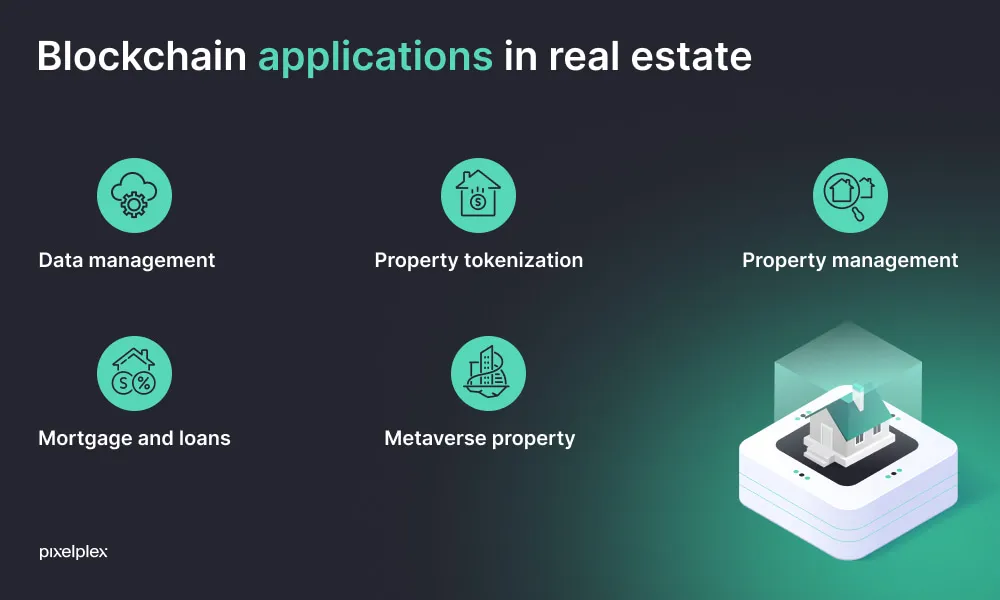🎁 Want a Surprise?
Click here to get redirected to a random post
Introduction
Blockchain technology, best known as the foundation for cryptocurrencies like Bitcoin, is increasingly making waves in the real estate industry. Its potential to revolutionize how real estate finance and transactions are conducted has caught the attention of investors, developers, and regulators alike. By offering greater transparency, security, and efficiency, blockchain could reshape the traditional real estate landscape, addressing longstanding challenges in property ownership, financing, and transfers.
This article delves into the role of blockchain in real estate finance and transactions, exploring how it works, its benefits, challenges, and the future outlook for the industry.
Understanding Blockchain Technology
What Is Blockchain?
Blockchain is a decentralized digital ledger that records transactions across multiple computers in a way that makes the records tamper-proof and transparent. Each transaction is grouped into blocks, linked chronologically, and secured through cryptographic hashes, making it extremely difficult to alter past data.
Key Features Relevant to Real Estate
- Decentralization: No single entity controls the ledger, reducing fraud risk.
- Transparency: All participants can verify transaction histories.
- Immutability: Once recorded, transactions cannot be changed or deleted.
- Smart Contracts: Self-executing contracts with coded terms that automate transactions.
Blockchain Applications in Real Estate Finance
Streamlining Property Title Records
One of the most significant uses of blockchain is digitizing property titles and ownership records. Traditional paper-based systems can be slow, error-prone, and vulnerable to fraud. Blockchain can provide a secure, immutable ledger of ownership, reducing disputes and accelerating transfers.
Facilitating Secure Transactions
Blockchain enables direct peer-to-peer transactions without intermediaries like escrow agents or brokers, cutting costs and speeding up the process. Smart contracts automate payments and document exchanges upon meeting predefined conditions.
Enhancing Transparency and Trust
With a public ledger, buyers, sellers, lenders, and regulators can verify transaction histories and ownership details instantly, fostering greater trust.
Tokenization of Real Estate Assets
Blockchain allows properties or portfolios to be divided into digital tokens, representing fractional ownership. This innovation opens real estate investment to a broader audience, enabling smaller investors to participate and improving liquidity in an otherwise illiquid market.
Impact on Financing and Investment
Access to New Funding Models
Blockchain-powered platforms facilitate crowdfunding and peer-to-peer lending, bypassing traditional banks and expanding financing options for developers and buyers.
Reduced Costs and Faster Processing
Automated processes reduce administrative overhead, underwriting times, and settlement delays, making financing more efficient and affordable.
Increased Liquidity
Tokenization creates a secondary market for property shares, allowing investors to buy and sell fractional ownership easily, increasing liquidity compared to conventional real estate investments.
Challenges and Limitations
Regulatory Uncertainty
Blockchain’s use in real estate raises complex legal questions, including jurisdictional issues, compliance with securities laws for tokenized assets, and data privacy concerns.
Technology Adoption Barriers
Integrating blockchain into existing real estate systems requires significant technological upgrades and education for industry stakeholders.
Security Concerns
While blockchain itself is secure, smart contracts and platforms can be vulnerable to coding errors or hacks, posing risks to users.
Market Volatility
Tokenized real estate investments may face price fluctuations influenced by broader cryptocurrency market dynamics, potentially deterring risk-averse investors.
Real-World Examples and Case Studies
Blockchain in Property Title Management
Several countries and local governments have piloted blockchain-based land registries to improve transparency and reduce fraud, such as Sweden’s Lantmäteriet project.
Tokenized Real Estate Platforms
Companies like RealT and Harbor enable investors to buy tokenized shares in U.S. rental properties, distributing rental income through blockchain.
Smart Contract-Powered Sales
Real estate firms are experimenting with smart contracts to automate escrow, closing, and payment processes, reducing transaction times from weeks to days or even hours.
The Future of Blockchain in Real Estate
Greater Industry Adoption
As technology matures and regulations become clearer, more stakeholders will adopt blockchain for various real estate processes.
Integration with Other Technologies
Combining blockchain with AI, IoT, and big data can further enhance property management, valuation, and investment analysis.
Democratization of Real Estate Investment
Tokenization will likely lower entry barriers, making real estate accessible to a wider range of investors globally.
Conclusion
Blockchain technology is poised to transform real estate finance and transactions by increasing transparency, reducing costs, and democratizing investment. While challenges remain—particularly around regulation and technology adoption—the potential benefits make blockchain an exciting frontier in real estate innovation. For investors, developers, and buyers alike, staying informed about blockchain’s evolving role will be key to leveraging its advantages in the coming years.
Frequently Asked Questions (FAQs)
Q1: How does blockchain improve property title management?
Blockchain creates a secure, immutable digital record of property ownership, reducing errors and fraud.
Q2: What is tokenization in real estate?
Tokenization divides ownership of a property into digital tokens, allowing fractional investment and easier trading.
Q3: Are blockchain real estate transactions faster than traditional ones?
Yes, blockchain can significantly reduce processing times by automating contracts and eliminating intermediaries.
Q4: Is blockchain legal for real estate transactions?
Regulations vary by jurisdiction, but many places are beginning to recognize and integrate blockchain-based processes.
Q5: What are smart contracts?
Smart contracts are self-executing contracts coded on blockchain that automatically enforce terms when conditions are met.


